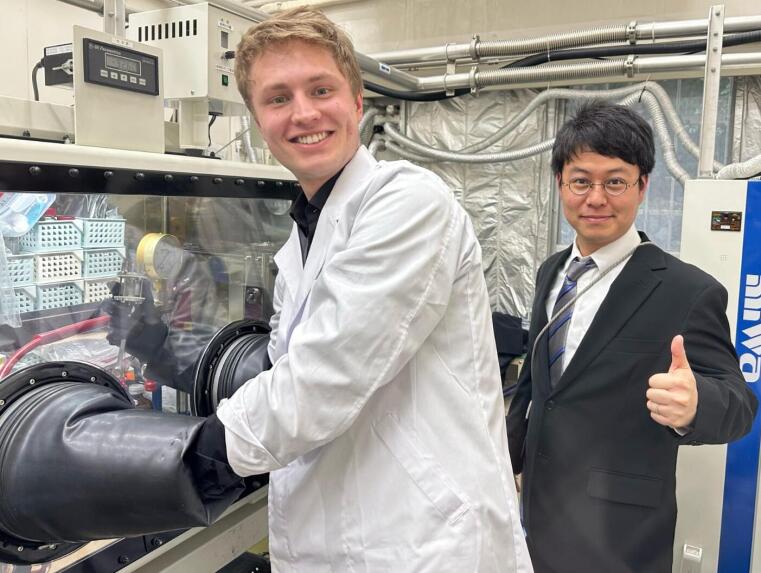From MEET Battery Research Center to the Kyushu University in Japan
Researching abroad, establishing international networks and personal growth: Pursuing these ambitions, Niklas Abke, PhD student in the Research Division Analytics & Environment at MEET Battery Research Center at the University of Münster, traveled to Japan for eight and a half weeks to work at Kyushu University. His research focuses on the analysis of solid-state batteries. In particular, he develops new analytical methods to decipher degradation mechanisms, as these lead to a progressive reduction of batteries to store and release energy. In this interview, Abke explains why he went to Japan for his research and why he recommends students to spend time abroad.
Why did you decide to conduct research in Japan?
Niklas Abke: I work closely with scientists from various Japanese universities in the joint project “AReLiS-3”. Our aim is to develop, investigate and optimize innovative cell designs, materials, electrode coatings and electrolytes for solid-state battery systems. This is why I decided to go to Japan. One of the Japanese colleagues within the project, Yuta Ito, also spent a few months at MEET Battery Research Center last year. The opportunity to work together in the laboratories pushed our research considerably.
What exactly was your research topic at Kyushu University?
Niklas Abke: My focus was on solid-state electrodes with high energy density. On the anode side, I explored their lithiation mechanisms with an in situ forming solid electrolyte. I investigated these anodes at different charging levels. They are now being sent to Germany for further analysis. At MEET, I can analyze them using the time-of-flight secondary ion mass spectrometry method. On the cathode side, I have coated sulfur-based cathode active materials with a solid-state electrolyte to achieve high energy densities.

What was one of your highlights in Japan?
Niklas Abke: I did not just meet my colleague Ito in Osaka. We also jointly visited our project partner Arunkumar Dorai in Sendai. That was special, as we knew each other previously only from emails and online meetings. The personal exchange and the direct insights into the work on site really enriched us and our collaboration.
Why do you recommend a stay abroad to students?
Niklas Abke: For me, it was my second research stay in Japan. I not only advanced my work, but also made friends and grew as a person. It is really something special to be able to get to know and experience a new culture and different ways of working over a longer period. It was also a fantastic opportunity to refresh my Japanese language skills and put them into practice.
What did you particularly like about Japan?
Niklas Abke: Firstly, the culture. Many temples and buildings in Japan have been very well preserved for hundreds of years and give an insight into other times. Secondly, of course, the food. My favorite dish is ramen, which is noodles with broth and toppings. The toppings vary from region to region. In general, there are many local specialties in Japan, for example regional souvenirs. Anyone who has been on vacation will give their friends one of these specialties. That is why I brought my colleagues at MEET “Tokyo Bananas”, a Japanese banana-shaped sponge cake with a cream filling.

